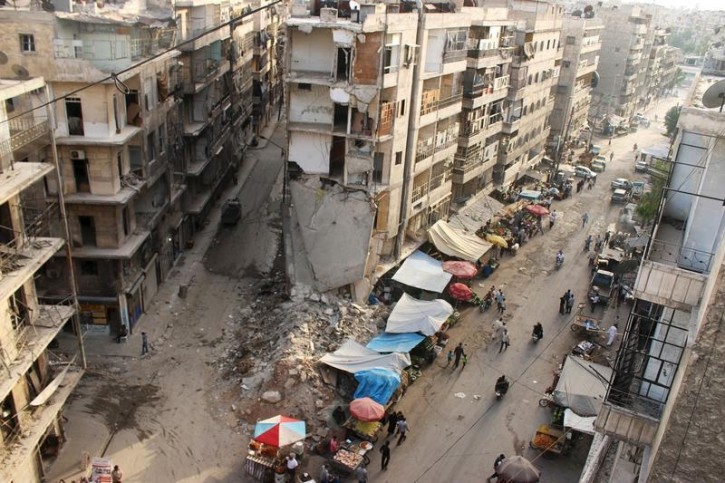
United Nations – U.N. Secretary-General Ban Ki-moon said Tuesday the world should be ashamed that three years after major powers approved a blueprint in Geneva to bring peace to Syria the suffering of its people is reaching new depths and the country is “on the brink of falling apart.”
The U.N. chief said more than 220,000 Syrians have died in the conflict, now in its fifth year, almost half the population has been forced to flee their homes, and civilians still face attacks by barrel bombs and “horrendous” human rights violations including torture and the prolonged detention of tens of thousands.
At the same time, Ban said, different parts of Syria are increasingly controlled by a patchwork of violent players including the extremist Islamic State group and the al-Nusra Front, an al-Qaida affiliate, and the country’s cultural heritage “is under assault.”
“It is time to find an exit from this madness,” Ban said. “The international community, and in particular the Security Council, cannot afford to waste any further time in ending the cycle of violence.”
The secretary-general issued the statement on the third anniversary of the June 30, 2012 agreement in Geneva on a roadmap to peace in Syria. The plan, approved by the Action Group for Syria, calls for a political process that would start with the establishment of a transitional governing body for Syria vested with full executive powers and end with elections.
The Action Group included representatives of the U.N., Arab League, European Union, Turkey, and all five veto-wielding members of the U.N. Security Council — the U.S., Russia, China, France and Britain.
Ban appealed “in the strongest possible terms” to the international community to work with his special envoy, Staffan de Mistura, to implement the Geneva agreement “before further irreparable damage is done to Syria, its people and the region.”
While there was unanimous agreement for the Geneva communique, Russia and China, close allies of the Syrian government, vetoed a Security Council resolution supporting the document weeks later because it threatened to put pressure on Syrian President Bashar Assad if the fighting didn’t end. Beijing and Moscow had previously vetoed two other resolutions for similar reasons — and the division in the Security Council remains to this day.
De Mistura has spent several months meeting individually with all parties, including Assad, on a possible way forward. U.N. deputy spokesman Farhan Haq said de Mistura will come to U.N. headquarters on July 7 for a round of meetings with Ban, U.N. officials and eventually the Security Council to discuss his recommendations for a way ahead.
As reported by Vos Iz Neias
